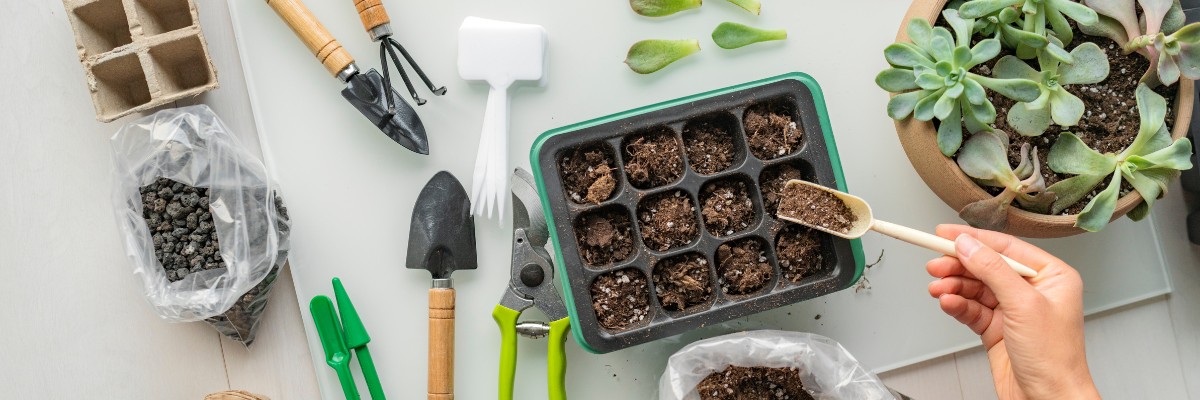Gardening is a rewarding and fulfilling hobby that allows you to connect with nature, cultivate beautiful plants, and enjoy the fruits of your labor. Whether you have a spacious backyard or a small balcony, anyone can embark on a gardening journey. However, for beginners, the world of gardening may seem overwhelming with its diverse terminology and practices. Fear not! This article aims to provide you with essential tips and guidance to help you kickstart your gardening adventure and develop a green thumb. From understanding soil composition to choosing the right plants and mastering basic care techniques, these fundamental principles will set you on the path to success.
Know Your Soil
The foundation of a healthy garden lies in understanding your soil. Different plants have different soil requirements, so it’s essential to assess the composition of your soil before planting. Conduct a soil test using a home testing kit or seek professional assistance. The test will determine the soil’s pH level, nutrient content, and texture. Most plants thrive in well-drained soil with a pH level around 6 to 7. If your soil lacks nutrients, consider enriching it with organic matter such as compost or aged manure. Sandy soils benefit from the addition of organic matter to retain moisture, while clay soils can be lightened with sand or peat moss.
Select Suitable Plants
Choosing the right plants for your garden is crucial, especially for beginners. Start with plants that are known to be hardy and resilient, as they are more forgiving of beginner mistakes. Consider the sunlight exposure in your garden area. Some plants thrive in full sun, while others prefer partial shade. Also, take into account the climate and the USDA hardiness zone you reside in. Native plants are often well-adapted to local conditions, making them easier to grow. Additionally, opt for plants with similar water and maintenance requirements to simplify your gardening routine.
Plan Your Garden Layout
Before you start planting, take some time to plan your garden layout. Consider the mature size of the plants and their growth habits. Taller plants should be placed at the back to prevent shading of smaller ones. Group plants with similar water and sunlight needs together to make watering and care more efficient. Remember to leave enough space for the plants to grow and provide proper air circulation. Utilize vertical gardening techniques such as trellises or hanging baskets to maximize space. A well-planned garden layout will not only enhance the aesthetic appeal but also facilitate maintenance and reduce potential problems.
Watering and Irrigation
Proper watering is vital for the health and vitality of your plants. Overwatering can lead to root rot, while underwatering can cause stress and stunted growth. Learn the watering requirements of each plant and adjust accordingly. Most plants prefer deep, infrequent watering rather than shallow, frequent watering. Water the plants in the early morning or late afternoon to minimize water loss due to evaporation. Consider using mulch around your plants to retain moisture, suppress weed growth, and regulate soil temperature. Invest in a quality irrigation system, such as a drip irrigation or soaker hose, for efficient and consistent watering.
Regular Maintenance and Care
To ensure the success of your garden, regular maintenance and care are essential. Keep an eye out for pests, diseases, and weeds. Inspect your plants regularly, and if you notice any issues, take appropriate action promptly. Prune and trim your plants as needed to promote healthy growth and shape. Fertilize your plants with organic or slow-release fertilizers to replenish nutrients. Deadhead flowers to encourage continuous blooming. Additionally, monitor the overall health of your garden and be prepared to adjust your gardening practices accordingly. If you notice that certain plants are struggling or not thriving, consider adjusting their placement, soil conditions, or watering schedule.
Learn from Experience
Gardening is a continuous learning process, and each garden is unique. Embrace the opportunity to learn from your experiences and experiment with different plants, techniques, and designs. Keep a gardening journal to record your observations, successes, and challenges. Note down planting dates, growth patterns, and any changes you make to the garden. This will help you track your progress and make informed decisions in the future. Additionally, join local gardening clubs or online communities to connect with fellow gardeners, share knowledge, and seek advice. Gardening is a wonderful way to connect with others who share your passion and can provide valuable insights based on their experiences.
Embarking on a gardening journey can be both exciting and fulfilling. By following these essential tips, beginners can establish a strong foundation for their gardening endeavors. Remember to understand your soil, select suitable plants, plan your garden layout, provide adequate watering and irrigation, and maintain regular care. Through hands-on experience, you will develop a deeper understanding of your garden and its unique needs. So, roll up your sleeves, get your hands dirty, and enjoy the wonders of gardening as you watch your plants flourish and your gardening skills grow. Happy gardening!





